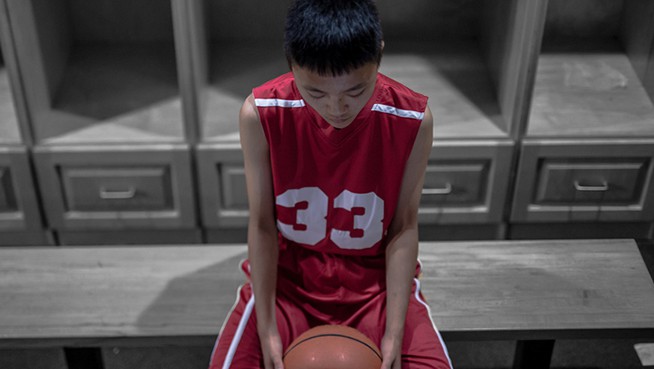Coaches: How To Effectively Handle When Players Quit
There are two types of players that quit.
The initial type is the player that we didn’t want to quit as coaches. And the second type is the player that we didn’t mind if they quit.
First, we should never want or be glad when a player quits or drops out.
It’s our responsibility as coaches to impact every player’s life regardless of how well we enjoy that individual. As the quote goes, “If our presence doesn’t make an impact, then our absence won’t make a difference.”
Yes, there will be players who negatively impact the greater good, whether through their negative attitude, obnoxious behavior, or lack of drive. These are the players who sometimes need coaches the most. You may be the only positive model, and they often behave negatively because of outside influences and experiences. If they quit, then the cycle will continue. Just know that you can make a difference.
The second type of player that quits is one we didn’t want to.

A rule of thumb is simple: You should never be surprised when someone quits.
No one just quits.
There is usually a slow fade and process that occurs. There are signs and behaviors, and clues. If we are shocked that a player quit, we did not have the communication or relationship needed to predict such an action.
Sometimes, these occurrences are outside of our control as coaches. A tragic life event, sudden move, a parent’s decision, or family situation can cause such a reaction from a player.
So, how should we effectively handle a situation when a player quits?
- Assess the situation: Was it a sudden and unexpected situation? Is contact needed, and what method of communication would be best? Is this a situation worth trying to save? Can we have additional resources available for them if it is a traumatic situation?
- Evaluate the cause: In an ideal world, the player approaches you properly and discusses why they are quitting. This is to be lauded if this occurs because too often, people, in general, do not have the tough conversation and avoid it. Try to avoid judgment and ultimatums. One of the worst ways to escalate a situation is to provide them with an either/or scenario. For example, “If you’re not at practice today, then clean out your locker.” Instead, seek to understand the real reasoning behind such an action. A technique to try is to recite the reason back to them. For instance, “Just so I’m clear, you’re quitting because…” As a coach, is there an alternative? Do we need time to think it through or bring other parties involved? Approaching the situation with care does not absolve anyone from responsibility if they return. There may indeed be natural consequences. However, there is a proper time and place for such follow-ups.
- Follow-Up: Hopefully, time and space can clear some of the emotions accompanying such decisions and actions. If we allow it an option for the player and or parties involved to take a day and report back, then be certain to remain available and follow-up. If that time period passes and they’ve still committed to quitting, then be certain to initiate closure and on the best terms possible. We may feel hurt ourselves as coaches, so remember, we often don’t know the entire situation, and the attitude of “don’t let the door hit you on the way out” never achieves any growth.
- Assume responsibility: If a player quits, we need to ask ourselves, “what was my role in this”? Of course, there are always two sides, but we did have a role because we are the coach. A few questions we need to ask ourselves: “Were we honest with the player from the start of the season about their role and playing time?” “Were there areas where we could have improved in the communication and relationship with the player?” “What could we have done differently?”
Going through these steps might not affect this player’s decision, but it can help us become better coaches. Look at our coaching and communication adjustments, no matter how small, that can help us improve. When faced with another situation in the future, hopefully, we’ve grown and gotten better from the first instance.
RECOMMENDED FOR YOU
MOST POPULAR
Coaches: How To Effectively Handle When Players Quit
There are two types of players that quit.
The initial type is the player that we didn’t want to quit as coaches. And the second type is the player that we didn’t mind if they quit.
First, we should never want or be glad when a player quits or drops out.
It’s our responsibility as coaches to impact every player’s life regardless of how well we enjoy that individual. As the quote goes, “If our presence doesn’t make an impact, then our absence won’t make a difference.”
Yes, there will be players who negatively impact the greater good, whether through their negative attitude, obnoxious behavior, or lack of drive. These are the players who sometimes need coaches the most. You may be the only positive model, and they often behave negatively because of outside influences and experiences. If they quit, then the cycle will continue. Just know that you can make a difference.
The second type of player that quits is one we didn’t want to.

A rule of thumb is simple: You should never be surprised when someone quits.
No one just quits.
There is usually a slow fade and process that occurs. There are signs and behaviors, and clues. If we are shocked that a player quit, we did not have the communication or relationship needed to predict such an action.
Sometimes, these occurrences are outside of our control as coaches. A tragic life event, sudden move, a parent’s decision, or family situation can cause such a reaction from a player.
So, how should we effectively handle a situation when a player quits?
- Assess the situation: Was it a sudden and unexpected situation? Is contact needed, and what method of communication would be best? Is this a situation worth trying to save? Can we have additional resources available for them if it is a traumatic situation?
- Evaluate the cause: In an ideal world, the player approaches you properly and discusses why they are quitting. This is to be lauded if this occurs because too often, people, in general, do not have the tough conversation and avoid it. Try to avoid judgment and ultimatums. One of the worst ways to escalate a situation is to provide them with an either/or scenario. For example, “If you’re not at practice today, then clean out your locker.” Instead, seek to understand the real reasoning behind such an action. A technique to try is to recite the reason back to them. For instance, “Just so I’m clear, you’re quitting because…” As a coach, is there an alternative? Do we need time to think it through or bring other parties involved? Approaching the situation with care does not absolve anyone from responsibility if they return. There may indeed be natural consequences. However, there is a proper time and place for such follow-ups.
- Follow-Up: Hopefully, time and space can clear some of the emotions accompanying such decisions and actions. If we allow it an option for the player and or parties involved to take a day and report back, then be certain to remain available and follow-up. If that time period passes and they’ve still committed to quitting, then be certain to initiate closure and on the best terms possible. We may feel hurt ourselves as coaches, so remember, we often don’t know the entire situation, and the attitude of “don’t let the door hit you on the way out” never achieves any growth.
- Assume responsibility: If a player quits, we need to ask ourselves, “what was my role in this”? Of course, there are always two sides, but we did have a role because we are the coach. A few questions we need to ask ourselves: “Were we honest with the player from the start of the season about their role and playing time?” “Were there areas where we could have improved in the communication and relationship with the player?” “What could we have done differently?”
Going through these steps might not affect this player’s decision, but it can help us become better coaches. Look at our coaching and communication adjustments, no matter how small, that can help us improve. When faced with another situation in the future, hopefully, we’ve grown and gotten better from the first instance.












